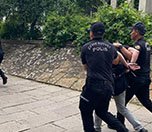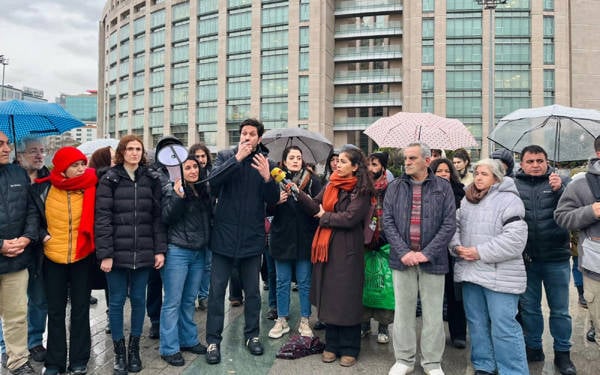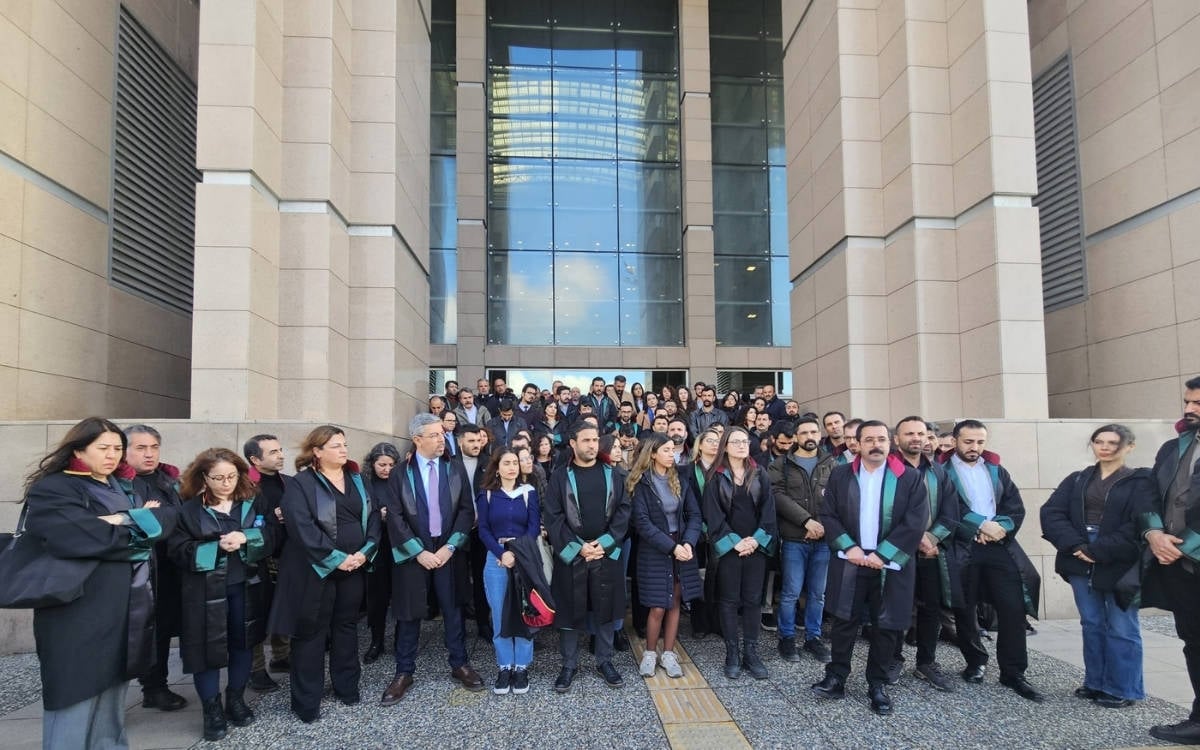Click to read the article in Turkish
Ankara Mayor Mansur Yavaş a complaint against Önder Algedik over his statements about the felling of trees for road construction in the capital city.
In the complaint he filed, Yavaş also pressed "spreading misleading information" charges against Algedik, as per article 217/A of the Turkish Penal Code.
The article was added to the penal code after a "disinformation law" was enacted in October.
Speaking to bianet about the complaint, Algedik said, "It is an absurd situation in every way," noting that not only Yavaş but also Melih Gökçek, the previous mayor and a member of the ruling party, had filed a complaint against him.
"A serious accusation"
"Mansur Yavaş filed a complaint against me because I objected to tree felling on Hacettepe University Beştepe Campus for road construction and I shared or retweeted reports about this issue.
"The basis of the complaint was the Turkish Penal Code article 217/A: the offense of openly disseminating misleading information," he said, adding that it was a "serious accusation."
The Table of Six
"First of all, the Table of Six wrote in its Joint Memorandum of Understanding that it would abolish the censorship law. So, a person who is said to be a vice presidential candidate now opposes the decision of the Table of Six," said Algedik.
The six-party opposition alliance on March 6 named Kemal Kılıçdaroğlu, leader of the main opposition Republican People's Party (CHP), its candidate for the May elections. Leaders of the five other parties and mayors of İstanbul and Ankara, both CHP members, will be vice presidents if Kılıçdaroğlu wins the election.
"Secondly, Mr. Mansur Yavaş already knew from the previous mayor that the residents of Ankara hated asphalt and concrete. But we see that he is trying to reassert this understanding with what he did at Hacettepe and METU,
"Thirdly and worst, we are entering a period in which it is not possible to object to the Ankara Metropolitan Municipality. Because all kinds of objections, all kinds of comments will be evaluated according to the disinformation law.
"The reason we called the disinformation law a 'censorship law' was because the information was under threat. Those who produced knowledge would be intimidated by threats. It is very strange that such a complaint was made against me by someone who calls himself a 'dissident.' It's absurd in every way, frankly."
Tree felling in Hacettepe
In late November, videos showing tree felling on the Hacettepe Campus circulated on social media.
Both the municipality and the university rector denied that trees had been cut down. The rector's office said a new road would be opened and some roads would be widened.
While the municipality said it had not been carrying out any work on the campus, the rector's office previously said the municipality had paved asphalt on the campus.
The 'disinformation law'According to the "Law on the Amendment of the Press Law and Some Laws" enacted in October 2022, those who "spread disinformation" will face up to three years in prison. Article 29 - Openly disseminating information misleading the public The following provisions were added to article 217 of the Turkish Penal Code No. 5237 dated 26/9/2004: Article 217/A- (1) Anyone who spreads information about internal or external security of the country, public order and public health which is not true just in order to create concern, fear, or panic among people in a manner that domestic peace may be disrupted will be punished with imprisonment sentence of one to three years. (2) If the crime is committed by an offender concealing their identity or within the framework of organizational activity, the penalty will be increased half fold." |
(TY/VK)












